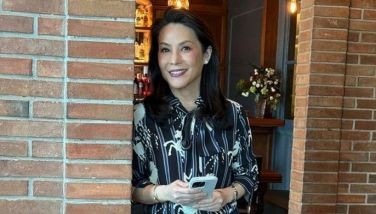Juan direction
Months ago, during a rather leisurely dinner, an Irish friend articulated his thoughts on the Philippines after having traveled around the country for close to two months. I was expecting him to extol the virtues of our dime-a-dozen White Sandy Beaches™, especially that overdeveloped rite of passage known as Boracay, so I was a bit surprised when he went off on a tangent.
Assuming the stance of a hawk-eyed sociologist, he said that he was struck the most by the number of times he’d seen the name “Juan” in advertising slogans, such as the Department of Science and Technology’s “Juan Time” and a low-cost carrier’s “Now every Juan can fly.” He was both amused and annoyed by its ubiquity, since throughout his short stay he claimed to have never met anyone who went by the moniker. Our consensus was that his observation was the most original we’ve heard in a while.
It was in 1902 that Robert McCulloch Dick, a Scottish court reporter in the then American-owned Manila Times, came up with the name “Juan de La Cruz” in generic reference to Filipinos “after discovering it was the most common name in blotters,” according to Wikipedia. one-hundred-twenty years later the term, still in circulation, has come to personify the Filipino even though these days, a less sober name appears to be more appropriate.
He who shall not be named
As the BBC’s Kate McGeown notes, “Bizarre and often unflattering names are as quintessentially Filipino as the country’s Catholic faith, friendly smiles, former US military jeeps known as jeepneys, beautiful beaches and love of karaoke.” To her Anglophile ears, playful appellations such as Bambi, Pinky, Joker or Jejomar are difficult to get used to. “And it seems perfectly natural to Filipinos that the boxer Manny Pacquiao should express his love for the British royal family by naming his daughter Queen Elizabeth,” she states.
While I’m used to funny — and punny — Filipino names, I also wince, cringe and cry tears of laughter at some of the things clueless parents choose to call their offspring. Never mind the Dingdongs and the Ann-Anns: For every Ryan or Amanda I know, I hear about someone actually christened Felvic or Jilmer, which are composites of more conventional baby names. And just when I assumed that “Jollibee” was the cruelest name one could give a daughter — I heard this anecdote from an ex-colleague — I spot something on my Tumblr dashboard that was more subversive than anything I could have ever imagined: some genius parent from Baguio dared to name his or her son Lord Voldemort.
‘Juan jondre’
While naming a child is clearly a matter of education, exposure and taste — or, alas, a lack thereof ‘ I sometimes think that a country’s past has something to do with it as well. McGeown concedes that “the Philippines is a melting pot of different cultures, and perhaps that is what led to these strange names.” This idiosyncratic approach to first names seems to be common among countries sharing colonial ties with Spain.
“So long, Hengelberth, Maolenin, Kerbert Krishnamerk, Githanjaly, Yornaichel, Nixon and Yurbiladyberth. The prolifically inventive world of Venezuelan baby names may be coming to an end,” wrote the New York Times’ Simon Romero in 2007. “If electoral officials here get their way, a bill introduced last week would prohibit Venezuelan parents from bestowing those names — and many, many others — on their children.” In another piece, Romero highlights more “whimsically colorful” handles such as “Yesaidú and Juan Jondre — transliterations of ‘Yes, I do’ and ‘One hundred.’” In the Dominican Republic, meanwhile, “the Central Electoral Commission has rejected a proposal to ban any names that could be confusing or give no indication of gender, such as Querida Piña (Dear Pineapple) and Tonton Ruiz (Dummy Ruiz),” adding that “it is not appropriate for the government to dictate what parents name their children,” according to an Associated Press article from 2009.
It may have taken me all this time to make sense of my Irish friend’s musings, but at least I have something substantial to talk about the next time we meet. Apart from an acquaintance who is more Spanish than anything, I don’t know anyone in the Philippines named Juan either. I guess the one-Juan word play will have to do for now. After all, “Junjun time” or “Now every Junjun can fly” just doesn’t have the same ring to it.
* * *















